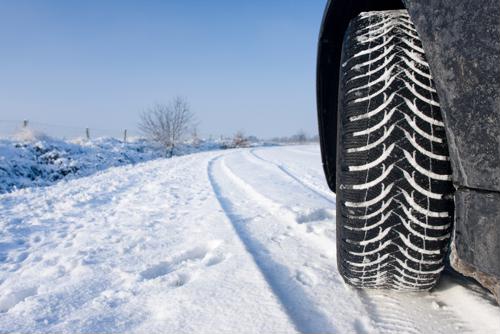
While winter is a beautiful time of year, it can take a serious toll on your car. Instead of waiting until a problem presents itself, which could be a serious blow to your bank account, it’s better to stay ahead of these issues by winterizing your car. Here are some of the best ways to winter-proof your car and why it could save you money in the long run:
Update your tires
For those of you that live in areas with more serious winter climates, winter tires can make all the difference. Not only are they safer, but they could prevent a terrible accident from happening. Winter tires may seem like an unnecessary cost right now, but a car accident as the result of bad weather could mean paying for a new vehicle or losing something that could never be repaid. According to the tire company Bridgestone, winter tires have many different benefits for those who may be braving severe winter conditions:
- Added traction.
- Pressure distribution.
- Responsive handling.
- Valuable and unique tread patterns.
Check your vehicle’s fluids
It is always important to keep your engine fluids full, but that’s especially true for driving in colder weather. Here are some of the most valuable fluids that your car needs to operate properly in the winter, according to Delaware automotive company Tommy’s Automotive:
- Oil: Your car needs regular oil changes regardless of the season. The consequences of a broken-down vehicle in the winter have the potential to be far more dangerous than in more mild times of the year.
- Anti–freeze: According to Tommy’s, this fluid helps maintain the car’s cooling system. While you might not be using it now, anti-freeze could help save you from buying an entirely new radiator.
- Brake fluid: While driving in snow, ice and other winter conditions, you rely on your brakes more than any other time of year. This is why brake fluid can not only save you from having to repair your car, but it could also save your life.
Maintain your battery
You may not know that battery power drops when the temperature is colder. This means that it takes more energy for your car to start in the wintertime. At 32 degrees Fahrenheit, battery capacity drops by 20%. This is why it is especially important to make sure that your battery is working properly throughout the duration of the winter. Most retailers recommend that auto care providers install a battery at or above 600 CCA for optimal winter performance. This will save you some cash in the long run because if your car stops working due to a battery issue, all systems will be negatively affected.
These are only a few tips to ensure that your car runs smoothly this winter season. Preventative care and spending a little bit upfront can reduce your long-term vehicle costs. To learn more about how to manage your money, contact The Federal Savings Bank today.
This information is intended for educational purposes only. Products and interest rates subject to change without notice. Loan products are subject to credit approval and include terms and conditions, fees and other costs. Terms and conditions may apply. Property insurance is required on all loans secured by property. VA loan products are subject to VA eligibility requirements. Adjustable Rate Mortgage (ARM) interest rates and monthly payment are subject to adjustment. Upon submission of a full application, a mortgage banker will review and provide you with the terms, conditions, disclosures, and additional details on the interest rates that apply to you individual situation.

